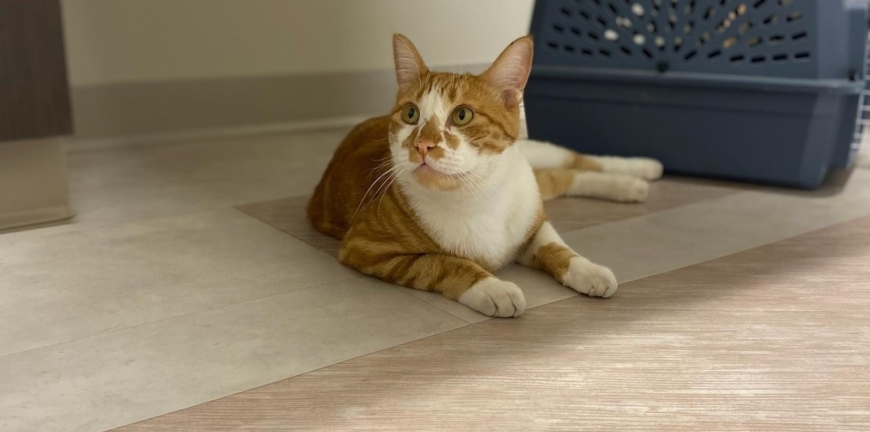January 11, 2023

Does my cat need vaccines?
Most of our cats have a different lifestyle than our dogs do. Many cats don’t go outdoors, don’t travel and rarely leave their house. Do they still need vaccines? The answer is yes – and we’ll tell you why.
A cat’s immune system
Cats are born without any immunity to the diseases of world. This is different than humans and even dogs which get some trans-placental immunity from their mothers. Kittens get some antibodies from drinking the first milk their mother produces (colostrum) and that’s it. Those antibodies wear off in the first 2-3 months of life leaving the kitten unprotected again. The only way a kitten can build immunity to diseases is either to get exposed to the disease itself (and survive) or get vaccinated. The good news is, that cat’s immune systems have a long memory. So if they are properly vaccinated as a kitten, protection can last quite a while.
Exposure is not always clear
Most of the infectious diseases in cats are spread from cat to cat by contact. So the cat that goes outside and interacts with other neighborhood cats or feral cats in the area is at high risk. They can get exposed by fighting with another cat, sniffing noses, hissing at each other, drinking or eating from the same bowls or friendly interactions like rubbing against or grooming each other. But what about the indoor only cat that never leaves the house? The first question you should ask yourself is – does my cat truly never leave the house? Does it go to the groomer or the vet? Will I ever need to board my cat – for a vacation or in an emergency situation? Do I ever plan to bring a new cat into the house (adoption, new roommate, new boyfriend, etc)? What if my cat escapes out the door one day? Even if your cat truly does never leave the house, if you leave your windows open in the summer and there are other cats outside, they could get exposed through the screen. You can also carry contagious diseases into your home on your clothes or your shoes.
But surely my indoor cat has no risk of exposure to Rabies
You may be surprised to know that I worry more about Rabies in indoor cats than I do any other contagious disease. Rabies in Central Oregon is found most often in bats. Often those rabid bats are found inside a home (or garage or shed). Sick bats seek a warm, enclosed space. Cats are curious and many will approach this new critter in their house to investigate. Because bats bites don’t leave much of a mark, it can be hard to know if your cat was exposed. Rabies is a fatal disease and there is no treatment. And it is zoonotic – which means humans can get it from animals, including our pets. In my opinion, Rabies is one of the most important vaccines for a cat – indoors or out!
General population health
Another thing to consider is the health of the cat population world wide. Many cats don’t have the benefit of safe, loving home. Contagious diseases are more prevalent in unvaccinated populations. Which means, the more cats that are vaccinated world wide, the more hampered these diseases are – it is harder for them to spread. Vaccination helps all cats stay safer.
How do you keep your cat safe?
We recommend vaccinating all kittens for FVRCP = feline viral rhinotracheitis (FVR), feline calicivirus (C), and feline panleukopenia (P). For FELV = feline leukemia virus. And for Rabies. Vaccination should start at 8 weeks of age and continue every 3-4 weeks until your kitten is 16-20 weeks old. Once they have completed their kitten vaccine series, they will continue to get vaccines as an adult. We like to talk to you about your cat’s lifestyle/exposure risk and determine which vaccines are recommended for your adult cat. Please contact our office if you have any questions about vaccines for your cat – we would be happy to help!